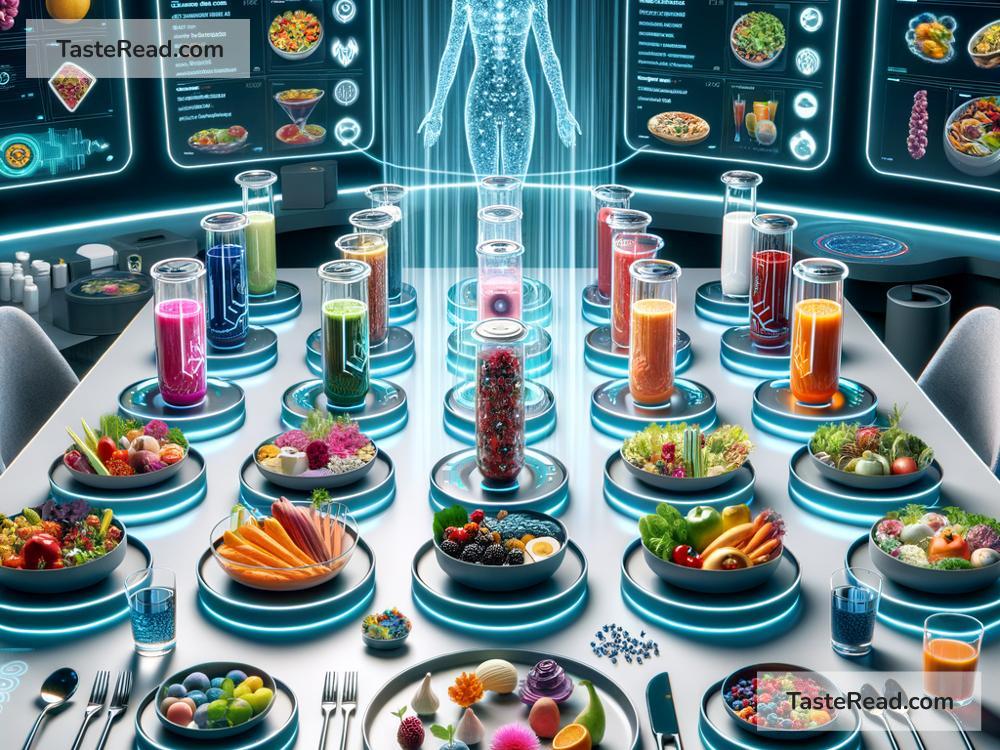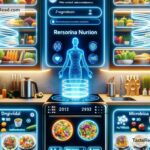The Future of Nutrition Science: Unlocking the Secrets to Healthier Living
Nutrition science, the study of how food impacts our bodies and health, has come a long way. From understanding basic vitamins and minerals to exploring how different nutrients affect our mood, energy levels, and lifespan, research has revolutionized the way we think about what we eat. But the exciting part is that the future of nutrition science holds even greater possibilities. With technology, genetics, and sustainability driving innovation, the way we eat and care for our bodies is poised for a dramatic transformation.
Here’s a glimpse into how nutrition science is evolving and what it means for all of us.
Personalized Nutrition: Food Made Just for You
One size doesn’t fit all when it comes to nutrition. We all have unique bodies that require different nutrients depending on our age, health, activity levels, and even our genes. Scientists are now studying how our DNA impacts how we process food, absorb nutrients, and manage weight.
Imagine visiting your doctor or using an app to get a personalized nutrition plan based on your genetics, gut microbiome (the collection of bacteria in your digestive system), and lifestyle. This approach, called “precision nutrition,” could help you eat better, prevent disease, and live longer. For instance, if your genes show that you’re sensitive to salt, you might be advised to reduce your sodium intake to avoid high blood pressure.
Some companies are already developing DNA-based diets, and as research advances, we’ll see more accessible tools to customize our eating habits. This could change how we think about food, moving away from generic rules like “eat fewer carbs” toward plans tailored uniquely to each person.
Gut Health: The Microbiome Revolution
The microbiome—trillions of bacteria living in your gut—has become one of the hottest topics in nutrition science. These bacteria play a big role in digestion, immune health, and even brain function. Studies show that an unhealthy microbiome might lead to issues like obesity, depression, or heart disease.
In the future, gut health could be the key to solving many health problems. Scientists are working on ways to target microbiomes through probiotics (healthy bacteria in foods like yogurt) and prebiotics (nutrients that feed those bacteria). They’re also exploring how these bacteria interact with different types of food, so we’ll better understand which diets promote a healthy gut.
We might even see gut-friendly supplements or meals designed to repair and balance the microbiome, making it easier for people to improve digestion and overall health.
Food Technology: Smarter, Healthier Options
Technology is changing how food is grown, produced, and consumed. In the future, we’ll see foods that are not only healthier but also more sustainable. For example:
- Plant-Based Innovations: Many companies are creating plant-based meats that mimic the taste and texture of animal products with fewer environmental impacts. These alternatives are packed with nutrients to match or exceed traditional meat, and they’ll likely become more common in our diets.
- Lab-Grown Foods: Scientists are working on producing meat, dairy, and seafood in labs, reducing reliance on farming and fishing. Lab-grown food could not only cut greenhouse gas emissions but also make food production more predictable and scalable in regions facing hunger.
- Functional Foods: Imagine eating bread enriched with nutrients to boost brain function or drinks that provide energy without caffeine. Future food products will be designed to “do more” for our bodies rather than just fill us up.
These innovations could make it easier for people everywhere to access nutritious, eco-friendly meals while addressing challenges like food waste and climate change.
Artificial Intelligence (AI) in Nutrition Research
AI is speeding up the discovery of new insights in nutrition science. By analyzing massive amounts of data, AI can identify patterns that humans might miss. For example, AI could study dietary habits of thousands of people and predict exactly which foods reduce the risk of specific diseases.
What’s more, AI-powered apps are being developed to give diet recommendations. These tools could track your eating habits, analyze your health metrics, and help you improve your nutrition in real time. As these technologies improve, they’ll become like virtual diet coaches, making nutrition guidance more accessible to everyone.
Sustainability and the Future of Food
Another big challenge for the future is making food systems sustainable. Nutrition science and agricultural research are working together to find solutions. For example, farmers are starting to grow crops that are rich in nutrients but require less water, land, and fertilizer. Scientists are experimenting with alternative proteins like algae and insects, which could provide cheap, nutritious food while using fewer resources.
Additionally, efforts to reduce food waste are gaining attention. Technologies like advanced packaging and better storage techniques could help keep food fresh for longer, making nutritious meals available to more people.
A Healthier, Smarter Tomorrow
The future of nutrition science is about creating smarter, healthier, and more sustainable solutions for everyone. With breakthroughs in genetics, gut health, food technology, and AI, we’ll have access to tools that help us eat better and live longer.
Nutrition will no longer just be about following basic diet advice like “eat your veggies.” Instead, it will be about understanding your body’s unique needs and giving it exactly what it needs to thrive. Personalized plans, microbiome-friendly foods, and sustainable innovations will help improve global health and ensure food security for generations to come.
It’s an exciting time in nutrition science, and as research continues to advance, we’ll have the power to take control of our health in ways we never imagined. The future of food isn’t just about survival—it’s about optimizing our lives, one bite at a time!


